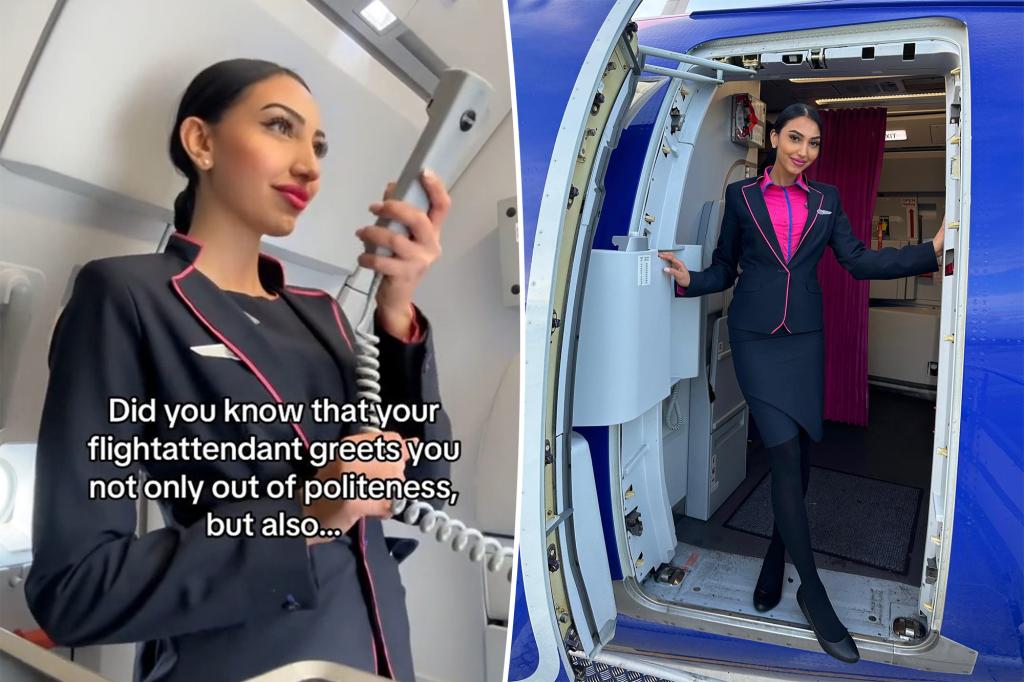Flight attendants have a hidden agenda when they greet passengers with smiles during boarding, according to a recent revelation. They are not just being polite; they are sizing up the passengers to determine if they are too drunk or sick to fly. This assessment is also to identify able-bodied passengers who could help out in case of an emergency evacuation. Additionally, flight attendants are trying to avoid placing vulnerable passengers, such as children, the elderly, and those with disabilities, in exit rows where they may impede the evacuation process.
Beyond just being a courtesy, the initial greeting from flight attendants serves as an unofficial second security checkpoint. They are on the lookout for suspicious items like coolers and are trying to gauge if passengers are intoxicated by engaging in a brief interaction during boarding. This newfound knowledge has sparked mixed reactions among viewers, with some feeling like their privacy is being violated and others finding it amusing to learn the truth behind these seemingly friendly interactions. The focus on testing passengers for intoxication is becoming increasingly important due to recent incidents of disruptive behavior in the airline industry.
There were various reactions from viewers upon learning about the hidden motives behind flight attendants’ greetings during boarding. Some viewers felt that flight attendants should stay out of passengers’ personal business, while others admitted they had always suspected being judged upon boarding. Interestingly, many commenters expressed discomfort with the idea of being tested for intoxication before flying, with some sharing personal experiences of being incorrectly assumed to be drunk by airline staff. This underscores the sensitive nature of testing passengers for intoxication and the potential for misunderstandings to occur.
The practice of using the initial greeting as a way to assess passengers’ state of mind before a flight highlights the multiple responsibilities that flight attendants have beyond providing customer service. It reveals the need for them to be vigilant about potential security threats and to ensure the safety of all passengers on board. By identifying individuals who may not be fit to fly due to intoxication or illness, flight attendants play a crucial role in maintaining order and readiness during flights. This element of their job adds an extra layer of complexity to their duties and underscores the importance of their training and expertise in handling various scenarios while in the air.
Ultimately, the purpose of flight attendants’ initial greeting goes beyond mere politeness and serves as a strategic way to assess passengers for their readiness to fly and their potential to assist in emergencies. This behind-the-scenes look at the hidden motives behind seemingly routine interactions sheds light on the multifaceted nature of the airline industry and the ongoing efforts to ensure the safety and security of passengers while in the air. It provides valuable insight into the proactive measures taken by flight attendants to anticipate and mitigate potential risks, ultimately contributing to a smoother and more secure flying experience for all. Despite the mixed reactions from viewers, understanding the reasoning behind flight attendants’ actions can help passengers appreciate the thought and preparation that goes into ensuring their well-being during air travel.


